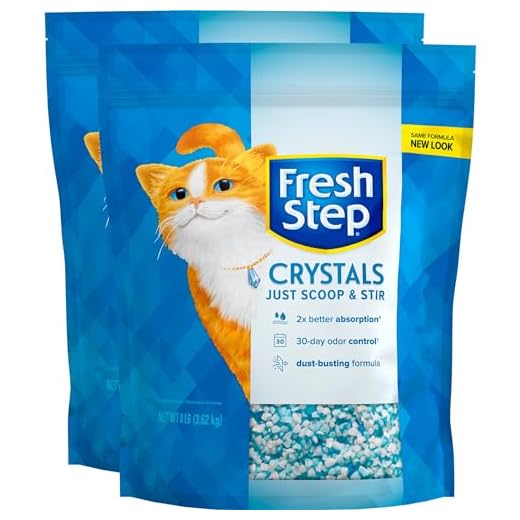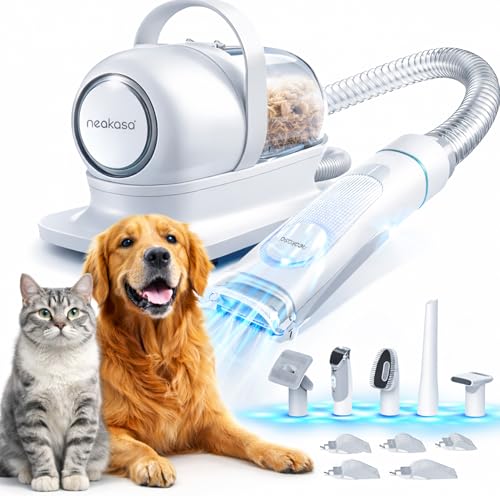



First and foremost, ensure that the litter box is always clean. A dirty box can lead to refusal to use it. Scoop it daily and change the litter completely every week. I, Johnny, prefer a fresh environment, and so do many others.
Next, consider the location of the litter box. It should be in a quiet, accessible area away from food and water bowls. If I feel threatened or disturbed, I might look for alternative spots. Choose a place where I can feel secure while doing my business.
Experiment with different types of litter. Some felines have preferences that can affect their bathroom habits. Try clumping, non-clumping, clay, or biodegradable options to see what I like best. A little trial and error can go a long way.
Provide multiple boxes if there are several furry friends in the home. The general rule is one box per cat plus one extra. This ensures everyone has access without feeling crowded. It’s all about creating a comfortable space for each of us.
If behavioral issues persist, a visit to the vet might be necessary. There could be underlying health problems contributing to the situation. Regular check-ups can help maintain overall well-being and prevent accidents.
Understanding the Reasons Behind Your Feline’s Behavior
Identifying the root causes of inappropriate elimination can greatly assist in addressing the issue. Here are several factors to consider:
- Medical Issues: Health problems such as urinary tract infections, bladder stones, or diabetes can lead to sudden changes in bathroom habits. A visit to the vet is critical for diagnosis.
- Stress Factors: Changes in the environment, such as new pets, moving, or alterations in routine can create anxiety. Recognizing these stressors is key to managing behavior.
- Litter Box Preferences: Some may prefer certain types of litter or box styles. Ensure the box is clean, accessible, and located in a quiet area.
- Territorial Marking: Unneutered males and certain females may mark territory. Spaying or neutering can help reduce this behavior.
- Age-Related Issues: Senior felines may face cognitive decline or physical limitations that affect their ability to reach the litter box in time.
Observing changes in behavior and environment can provide insights into underlying issues. For travel, consider pet travel essentials for cats and dogs to ensure comfort and reduce stress during transitions.
Evaluating the Litter Box Setup
Ensure the litter box is spacious enough for comfort. A good rule is to have a box that’s at least one and a half times my length. This allows movement and digging without feeling confined.
Consider the location of the box. It should be placed in a quiet, low-traffic area, away from loud appliances or busy rooms. If it’s too exposed, I might feel stressed and avoid using it.
Use the right type of litter. Many prefer clumping, unscented options that mimic natural materials. Experimenting with different textures may reveal what I find most appealing.
Regular cleaning is crucial. A dirty box can deter me from using it. Scoop out waste daily and change the litter weekly. Deep cleaning the box with mild soap every month helps eliminate odors.
Evaluate the number of boxes available. The general guideline is one more than the number of pets. If there are multiple felines, having separate boxes can reduce territorial disputes.
Consider the depth of the litter. Some enjoy digging, while others prefer just a thin layer. Adjusting the amount may lead to better experiences and encourage usage.
Lastly, assess any barriers to access. Ensure the box is easy to enter and exit. If it’s too high or has a lid that feels cramped, I might choose to eliminate elsewhere.
Choosing the Right Type of Cat Litter
Silica gel litter is a solid choice. It absorbs moisture and controls odors effectively while keeping the surface dry. This type minimizes tracking and is low in dust, making it comfortable for sensitive noses.
Clay-based litters, especially clumping varieties, provide excellent absorption. They form solid clumps upon contact with moisture, simplifying cleanup. Opt for unscented versions to avoid overwhelming sensitivities.
Natural options, such as those made from recycled paper or wood, offer an environmentally friendly alternative. They are often softer on paws and tend to produce less dust. These types may require more frequent changing but are gentle on noses.
Crystal litters are another alternative, utilizing tiny crystals that absorb moisture and control odors. They are low in dust and can last longer between changes, making them convenient for busy households.
Consider your preferences as well. Some prefer a soft feel underfoot, while others prioritize odor control. Testing different litter types can help identify what suits individual tastes best.
Monitor how I respond to each option. If irritations arise or behaviors change, adjustments may be necessary. Finding the right fit is critical for comfort and ensuring a happy environment.
Establishing a Consistent Cleaning Routine
Daily cleaning of soiled areas is non-negotiable. Use an enzymatic cleaner specifically designed for removing pet stains and odors. These products break down the proteins in urine, effectively eliminating the scent that may attract repeat visits to the same spot.
Schedule clean-ups at the same time each day, making it part of your routine. This consistency helps ensure no residual odors linger, which could trigger unwanted behaviors. I personally recommend cleaning in the morning and evening–it’s a great way to keep everything fresh.
For surfaces that can’t be cleaned with liquid cleaners, such as carpets or upholstery, consider using a steam cleaner. The heat can help eliminate odors while also disinfecting the area.
In addition, regularly check and clean around litter boxes. If the area surrounding the box is dirty, it might lead to misunderstandings about where it’s acceptable to relieve oneself. Always ensure that the litter box is kept in a clean environment.
Finally, keep an eye on your cleaning products. Some scents can be off-putting to felines. Opt for unscented or mild cleaners to avoid deterring them from using their designated areas.
Identifying Medical Issues That May Affect Urination
Regular veterinary check-ups are crucial. Conditions like urinary tract infections (UTIs) or bladder stones can cause discomfort and lead to inappropriate elimination. Schedule a visit if there are changes in habits.
Observe for signs of pain while using the litter box, such as straining or crying. This can indicate underlying issues that require immediate attention.
Monitor water intake. Increased thirst might be a symptom of diabetes or kidney disease. On the other hand, decreased drinking can lead to urinary problems.
Pay attention to behavioral changes. If a feline suddenly begins to urinate outside the litter box, it might signal stress or health problems. Look for any additional signs like lethargy or changes in appetite.
Consider age and breed factors. Older animals or specific breeds can be more susceptible to certain conditions. Discuss these aspects with a veterinarian for tailored advice.
Keep track of any medications. Some treatments can influence urination patterns. Inform the vet if there are any recent changes in medication.
Last but not least, don’t hesitate to seek a second opinion if issues persist. A fresh perspective might uncover underlying medical conditions. Prioritize health to ensure comfort and well-being.
Implementing Behavioral Modifications and Training
Utilize positive reinforcement techniques to encourage desired behaviors. Reward with treats or affection immediately after using the litter box correctly. This approach helps create a positive association with appropriate elimination locations.
Routine Establishment
Creating a consistent daily routine can significantly impact behavior. Feed at the same times each day, as this can help regulate bathroom habits. Schedule playtime and quiet moments to reduce stress, which can also minimize accidents outside designated areas.
Redirecting Attention
When an inappropriate spot is chosen, gently redirect to the litter box. Use a calm voice and provide encouragement. If the behavior persists, consider using a pheromone diffuser to create a calming environment, potentially reducing anxiety-driven issues.
| Behavior Modification Technique | Description |
|---|---|
| Positive Reinforcement | Reward after successful use of the litter box to promote good habits. |
| Consistent Routine | Regular feeding and play schedules can help regulate elimination behavior. |
| Pheromone Diffusers | Calming scents that reduce anxiety and promote a comfortable environment. |
For thorough cleaning of accidents, consider using a best pressure washer gun for car detailing to ensure all odors are eliminated. This can discourage repeat offenses in the same areas.
Creating a Calm Environment for Your Feline Friend
Prioritize a quiet space for relaxation. Set up a cozy nook with soft bedding away from loud noises and foot traffic.
- Use calming scents, such as lavender or chamomile, to create a soothing atmosphere.
- Incorporate vertical spaces like shelves or cat trees for climbing and surveying the surroundings.
- Provide hiding spots with boxes or tunnels, allowing for retreat during stressful moments.
Maintain a consistent routine. Regular feeding and playtimes help establish a sense of security.
Limit access to stressful stimuli. Keep windows covered to avoid outdoor distractions, and consider white noise machines to mask sudden sounds.
- Introduce gentle music designed for pets to promote relaxation.
- Ensure all interactions are calm and gentle, reinforcing a peaceful atmosphere.
Monitor interactions with other pets. Gradual introductions can reduce tension and help everyone coexist harmoniously.
Regularly assess the environment for changes that may induce stress. Adjustments can significantly enhance comfort.









